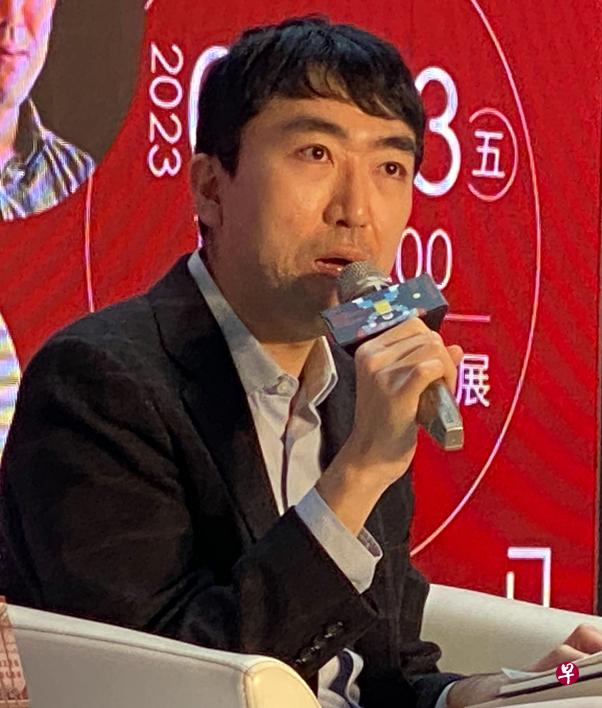
Japanese scholar Kuang Run believes that the current policy of Ma Xingrui, secretary of the party committee of Xinjiang Autonomous Region, will still take counter -terrorism and stability as the main axis.
For the Xinjiang policy of the 20th National Congress of the Communist Party of China, Kumakuka Runjun, a Japanese scholar who specializes in Chinese national policies, analyzed in Taipei last Friday (February 3). Although the counter -terrorism intensity has become peaceful, the policy logic will not change in the short term.EssenceHe also believes that under the catalytic gap between the rich and the poor, the local national contradictions are still difficult to resolve in the short term.
Xiongcang Run is an associate professor of the International Political Discipline of the Law of the Law of the Japanese Law and Government, specializing in the national policy of China and the Soviet Union, and research on regional issues in Central Asia.He held Xinjiang at the Taipei International Book Fair on the 3rd: the seventy -year conference dominated by the Communist Party of China, analyzed the Xinjiang issue from the perspective of historical and political development.
After the former governor of Guangdong Province Ma Xingrui was transferred to the party secretary of the Xinjiang Autonomous Region at the end of 2021, although maintaining consistent anti -terrorism and stability maintenance tone, it focused on economic and people's livelihood policies.It is generally believed that Ma Xingrui will focus more on economic development.
However, a fire occurred in a community in Urumqi, Xinjiang last November, and caused 10 deaths and 9 injuries due to improper seal control.
Afterwards, a large number of people broke through the blockade by themselves, requested before the Urumqi City Government, and immediately unblocked, and a police -civilian conflict occurred.White paper sports ".
For this reason, Xinjiang officially announced the severe punishment of inciting trouble and violent resistance to the prevention and control of epidemic.
For the next national policy direction of Xinjiang, Xiong Cangrun said that although the outside world observed that Ma Xingrui was not like the former Xinjiang Party Secretary Chen, Chen's country adopted a strong method of governing the country, the policy logic will not change in the short term, and it will still use it in the short term, and it will still use it in the short term, and it will still use it.Anti -terrorism and stability are the main axis.
He believes that the continuation of counter -terrorism policies can also be seen from Ma Xingrui's recent speech at the public meeting.
According to the Rule of Law Daily, Ma Xingrui requested that on January 29 at the Political and Legal Working Conference of the Party Committee of Xinjiang Autonomous Region to do their best to do a good jobMaintain the "three forces" (terrorism, division, and extremism forces) strictly beating the high -pressure trend, orderly optimizing stability and maintenance measures, and resolutely maintaining the overall social stability.
Xinjiang problem non -"racial extinction" is closer to "cultural ethnic extinction"
In addition, in recent years, the West has frequently accused the CCP's implementation of "racial extinction" in Xinjiang; Chinese officials refer to this that this is "ulterior motor rumors and a downright lie". The real purpose is to destroy Xinjiang's social stability and curb China's development.
Xiongcang Run pointed out that the definition of racial extinction originated from the West's reflection on the Nazi persecution of Jews, which is obviously gapd in the current national issue in Xinjiang.
He said, "Nazi Germany has never proposed to make the Jews a part of the Germanic family", and the CCP has more focused on promoting Uighurs to integrate into Chinese society.He believes that this assimilation policy that must be incorporated and unable to refuse is closer to the "ethnic extinction of culture".
Xiong Cangrun also mentioned that although the international political issues such as the recent Russia -Ukraine War and the situation in the Taiwan Strait have reduced their attention to Xinjiang, as long as the gap between the local rich and the poor and the unexplained resources are not resolved, it will continue to cause continuing to causeNational contradictions will also make complex national problems more difficult to solve.



